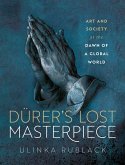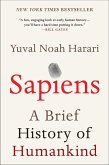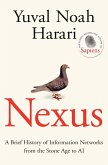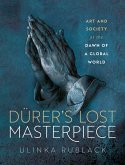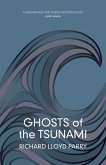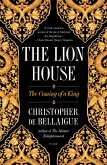A NEW STATESMAN 'BEST BOOK OF 2023'
A SPECTATOR 'BOOK OF THE YEAR' 2023
A WATERSTONES BEST BOOK OF 2023
'From plans for flying machines to philosophy - the remarkable joy of jotting things down' 'Book of the Day', Guardian
'A fine book on a fabulous subject' Daily Telegraph
'A fascinating study of notebooks through history ... beautifully written and a complete delight to dip in to or read from cover to cover' Alexander McCall Smith, Books of the Year, New Statesman
'Surprisingly revealing ... despite what Apple, Evernote and the like might try to tell us, the best cognitive tool available to us today was invented in the counting houses of Renaissance Florence' The Sunday Times
The first history of the notebook, a simple invention that changed the way the
world thinks.
We see notebooks everywhere we go. But where did this simple invention come from? How did they revolutionise our lives, and why are they such powerful tools for creativity? And how can using a notebook help you change the way you think?
In this wide-ranging story, Roland Allen reveals all the answers. Ranging from the bustling markets of medieval Florence to the quiet studies of our greatest thinkers, he follows a trail of dazzling ideas, revealing how the notebook became our most dependable and versatile tool for creative thinking. He tells the notebook stories of artists like Leonardo and Frida Kahlo, scientists from Isaac Newton to Marie Curie, and writers from Chaucer to Henry James. We watch Darwin developing his theory of evolution in tiny pocketbooks, see Agatha Christie plotting a hundred murders in scrappy exercise books, and learn how Bruce Chatwin unwittingly inspired the creation of the Moleskine.
On the way we meet a host of cooks, kings, sailors, fishermen, musicians, engineers, politicians, adventurers and mathematicians, who all used their notebooks as a space for thinking and to shape the modern world.
In an age of AI and digital overload, the humble notebook is more relevant than ever. Allen shows how bullet points can combat ADHD, journals can ease PTSD, and patient diaries soften the trauma of reawakening from coma. The everyday act of moving a pen across paper can have profound consequences, changing the way we think and feel: making us more creative, more productive - and happier.
A SPECTATOR 'BOOK OF THE YEAR' 2023
A WATERSTONES BEST BOOK OF 2023
'From plans for flying machines to philosophy - the remarkable joy of jotting things down' 'Book of the Day', Guardian
'A fine book on a fabulous subject' Daily Telegraph
'A fascinating study of notebooks through history ... beautifully written and a complete delight to dip in to or read from cover to cover' Alexander McCall Smith, Books of the Year, New Statesman
'Surprisingly revealing ... despite what Apple, Evernote and the like might try to tell us, the best cognitive tool available to us today was invented in the counting houses of Renaissance Florence' The Sunday Times
The first history of the notebook, a simple invention that changed the way the
world thinks.
We see notebooks everywhere we go. But where did this simple invention come from? How did they revolutionise our lives, and why are they such powerful tools for creativity? And how can using a notebook help you change the way you think?
In this wide-ranging story, Roland Allen reveals all the answers. Ranging from the bustling markets of medieval Florence to the quiet studies of our greatest thinkers, he follows a trail of dazzling ideas, revealing how the notebook became our most dependable and versatile tool for creative thinking. He tells the notebook stories of artists like Leonardo and Frida Kahlo, scientists from Isaac Newton to Marie Curie, and writers from Chaucer to Henry James. We watch Darwin developing his theory of evolution in tiny pocketbooks, see Agatha Christie plotting a hundred murders in scrappy exercise books, and learn how Bruce Chatwin unwittingly inspired the creation of the Moleskine.
On the way we meet a host of cooks, kings, sailors, fishermen, musicians, engineers, politicians, adventurers and mathematicians, who all used their notebooks as a space for thinking and to shape the modern world.
In an age of AI and digital overload, the humble notebook is more relevant than ever. Allen shows how bullet points can combat ADHD, journals can ease PTSD, and patient diaries soften the trauma of reawakening from coma. The everyday act of moving a pen across paper can have profound consequences, changing the way we think and feel: making us more creative, more productive - and happier.
Dieser Download kann aus rechtlichen Gründen nur mit Rechnungsadresse in A, D ausgeliefert werden.



